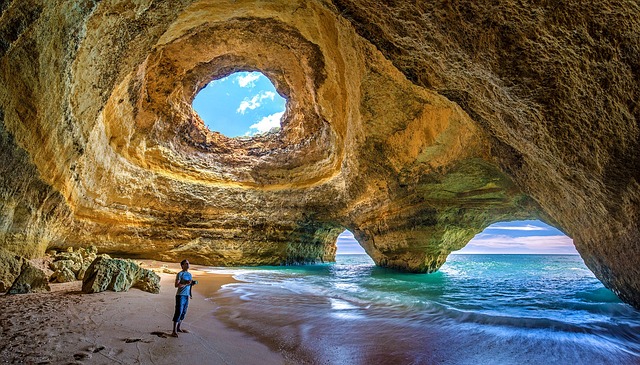Portugal for Digital Nomads

Portugal is a stunning country with stunning geography and abundant natural resources. It is a popular destination for digital nomads because of its friendly culture, high quality of life, and affordable cost of living. Here are some reasons why Portugal might be a good choice for digital nomads:
- Affordable cost of living: Portugal has a relatively low cost of living compared to many other European countries, which makes it an attractive option for digital nomads who want to stretch their budget further.
- High quality of life: Portugal consistently ranks highly in global rankings for quality of life, with a rich cultural history, beautiful beaches, and delicious food.
- Friendly culture: Portuguese people are known for their friendly and welcoming nature, which makes it easy for digital nomads to feel at home in Portugal.
- Good weather: Portugal has a Mediterranean climate, with warm summers and mild winters. This makes it an ideal destination for digital nomads who want to enjoy good weather all year round.
- Fast and reliable internet: Digital nomads need fast and reliable internet to work effectively, and Portugal has a well-developed infrastructure with good internet speeds.
Overall, Portugal is an attractive destination for digital nomads who are looking for an affordable, high quality of life, and a welcoming culture.
Portugal Facts
Here are some interesting facts about Portugal:
- Portugal is the oldest country in Europe. It was founded in 1139 and has a rich history and culture.
- Portugal is the home of Fado, a traditional form of music that originated in Lisbon. Fado is known for its emotive and melancholic melodies and lyrics.
- Portugal has a number of world-famous surf spots, including Ericeira and Peniche.
- Portugal is the world’s leading producer of cork, which is used to make everything from wine corks to shoes and bags.
- The Portuguese language is the sixth most spoken language in the world and is spoken by over 250 million people. It is also the official language of nine countries, including Brazil, Angola, and Mozambique.
- Portugal has a long tradition of fishing and is one of the world’s leading exporters of fish and seafood.
- The Portuguese are known for their love of soccer and have a strong national team that has won the European Championship and reached the semi-finals of the World Cup.
- The Portuguese have a strong tradition of literature and some of the world’s greatest writers, including Nobel laureate Jose Saramago and Fernando Pessoa, are from Portugal.
- Portugal is home to a number of unique and endangered species of animals, including the Iberian lynx and the Azores bullfinch.
- Portugal has some wonderful national parks with stunning scenery.
- The Portuguese were some of the first explorers to discover and colonize new lands, including Brazil, Angola, and Mozambique. Portuguese explorers also played a key role in the Age of Discovery, leading voyages to the East and West Indies and opening up trade routes to Asia and the Americas.
Portugal Official Language
The official language of Portugal is Portuguese. Portuguese is a Romance language that originated in what is now Galicia and Northern Portugal, and it is the sixth most spoken language in the world. Portuguese is spoken by over 250 million people and is the official language of nine countries, including Brazil, Angola, and Mozambique. It is also one of the official languages of the European Union and the Union of South American Nations (UNASUR). Portuguese has a rich literary tradition and is the language of some of the world’s greatest writers, including Nobel laureate Jose Saramago and Fernando Pessoa.
Portugal Visas for Digital Nomads
As visa information can become out of date quickly, we recommend visiting Portuagal’s E-VISA page to get the latest details. That page can be translated into English and a few other languages.
At the time of writing, we believe Portugal has a Digital Nomad Visa program that allows individuals to live and work in the country as digital nomads. Look into the “D-type Visa for Digital Nomads”. To qualify for the Digital Nomad Visa, applicants must be able to prove that they have a stable and regular income, have health insurance, and be able to demonstrate that they have the means to support themselves while living in Portugal.
The Digital Nomad Visa is valid for one year and can be renewed for up to two additional years. It allows holders to work remotely for an employer located outside of Portugal, or to run their own business. Digital nomads are required to spend at least 183 days per year in Portugal and must register with the Portuguese authorities within 10 days of arriving in the country.
In addition to the Digital Nomad Visa, Portugal also has a number of other visa options for individuals who wish to live and work in the country, including work visas, student visas, and family visas. It is recommended that potential applicants research and carefully consider their options before deciding which type of visa is best for them.
Fun Things to do in Portugal

There are many fun things to do in Portugal, including:
- Visit Lisbon, the capital of Portugal, and explore its winding streets, historic landmarks, and vibrant nightlife.
- Take a trip to the Algarve, a region in the south of Portugal known for its beautiful beaches, stunning cliffs, and charming villages.
- Visit the historic city of Porto, located in the north of the country, and taste the region’s famous port wine.
- Hike or bike through the beautiful countryside of the Serra da Estrela, the highest mountain range in mainland Portugal.
- Explore the historic castles and palaces of Sintra, a UNESCO World Heritage site located just outside of Lisbon.
- Visit the beautiful beaches of the Alentejo region and enjoy water sports such as surfing, stand-up paddleboarding, and kitesurfing.
- Take a boat tour of the Ria Formosa Natural Park, a protected area located in the Algarve region known for its rich birdlife and beautiful beaches.
- Visit the stunning beaches and caves of the Azores, a group of islands located in the Atlantic Ocean.
- Explore the ancient ruins of Conimbriga, a Roman settlement located near Coimbra in central Portugal.
- Visit the vibrant and colorful city of Lagos, located in the Algarve region, and enjoy its nightlife and lively atmosphere.
- Attend a football match. Portugal has a rich history of football, sporting some of the best players in the world, like Cristiano Ronaldo.
Popular Portugal Tourist Attractions
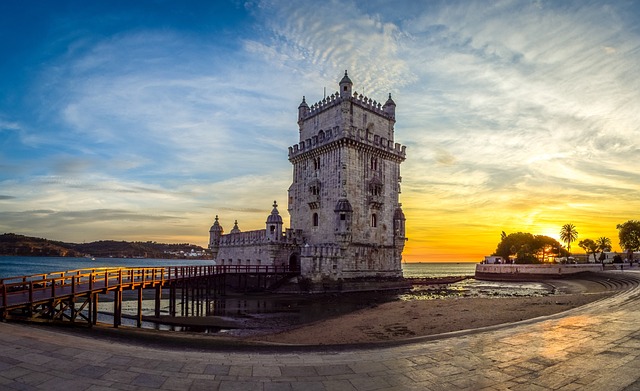
Portugal has many popular tourist attractions, including:
- The Belem Tower: Located in Lisbon, this 16th-century tower is a UNESCO World Heritage site and a symbol of the Age of Discovery.
- The Jeronimos Monastery: Another UNESCO World Heritage site located in Lisbon, this stunning monastery was built in the 16th century and is a masterpiece of Portuguese architecture.
- The Sagrada Familia: This iconic church in Porto is a must-see for visitors to the city.
- The Algarve: This region in the south of Portugal is known for its beautiful beaches, stunning cliffs, and charming villages.
- The Castle of Sao Jorge: This castle, located in Lisbon, offers panoramic views of the city and is a popular tourist attraction.
- The Cathedral of Porto: This beautiful cathedral is located in the heart of Porto and is a must-see for visitors to the city.
- The Ria Formosa Natural Park: This protected area, located in the Algarve region, is home to a rich variety of birdlife and beautiful beaches.
- The Serra da Estrela: This mountain range, located in the center of Portugal, is the highest in mainland Portugal and offers beautiful views and hiking and biking trails.
- The Azores: These islands, located in the Atlantic Ocean, are known for their beautiful beaches and caves, as well as their rich history and culture.
- The Conimbriga Roman Ruins: These ancient ruins, located near Coimbra in central Portugal, offer a glimpse into the history of the region.
Popular Portugal Tours
There are many popular tours of Portugal that allow visitors to explore the country’s rich history, culture, and natural beauty. Some popular tours include:
- Lisbon city tours: These tours take visitors through the winding streets of Lisbon and highlight the city’s historic landmarks, such as the Belem Tower and Jeronimos Monastery.
- Porto wine tours: These tours take visitors to the historic city of Porto and the surrounding wine regions, where they can sample the region’s famous port wine.
- Algarve beach tours: These tours take visitors to the beautiful beaches and charming villages of the Algarve region in the south of Portugal.
- Sintra castle tours: These tours take visitors to the historic castles and palaces of Sintra, a UNESCO World Heritage site located just outside of Lisbon.
- Azores island tours: These tours take visitors to the beautiful islands of the Azores, located in the Atlantic Ocean, and explore the region’s rich history and culture.
- Conimbriga Roman ruins tours: These tours take visitors to the ancient Roman settlement of Conimbriga, located near Coimbra in central Portugal.
- Lisbon food tours: These tours take visitors through the streets of Lisbon and introduce them to the city’s delicious cuisine and local specialties.
- Alentejo beach and wine tours: These tours take visitors to the beautiful beaches and wineries of the Alentejo region in central Portugal.
- Lisbon and Porto combo tours: These tours combine visits to Lisbon and Porto and allow visitors to experience the highlights of both cities.
- Portugal road trips: These tours take visitors on a journey through the diverse regions of Portugal, including the Algarve, the Alentejo, and the Azores.
Popular Portugal Golf Courses
Portugal has a number of popular golf courses, including:
- Vilamoura Golf Course: Located in the Algarve region, this course features several world-class golf courses, including the Old Course, the Victoria Course, and the Laguna Course.
- Quinta do Lago Golf Course: Another popular course in the Algarve region, this course features three 18-hole courses and is known for its challenging layout and beautiful surroundings.
- Belas Golf Course: This course, located in the Lisbon region, is known for its challenging layout and beautiful views.
- Pestana Golf Course: This course, located in the Algarve region, features three 18-hole courses and is known for its challenging layout and beautiful surroundings.
- Oitavos Dunes Golf Course: This course, located in the Lisbon region, is known for its challenging layout and stunning views of the Atlantic Ocean.
- Montado Golf Course: This course, located in the Alentejo region, is known for its challenging layout and beautiful surroundings.
- Oceanico Golf Course: This course, located in the Algarve region, features several world-class golf courses, including the Old Course, the Faldo Course, and the Millennium Course.
- Penha Longa Golf Course: This course, located in the Lisbon region, is known for its challenging layout and beautiful surroundings.
- Troia Golf Course: This course, located in the Setubal region, is known for its challenging layout and beautiful views of the Atlantic Ocean.
- CampoReal Golf Course: This course, located in the Lisbon region, is known for its challenging layout and beautiful surroundings.
Portugal Population
Demographics and social issues can be key determinants for digital nomads. As of 2021, the population of Portugal is approximately 10.3 million people. The population of Portugal has been relatively stable in recent years, with a slight increase due to immigration from other countries. The population of Portugal is ethnically diverse and includes people of Portuguese, Brazilian, African, and other European backgrounds. The majority of the population speaks Portuguese, although there are also speakers of other languages, including English, French, and Spanish. Portugal is a member of the European Union and the Schengen Agreement, which allows for the free movement of people within the EU.
The population of Portugal is relatively evenly distributed throughout the country, with the largest concentrations of people living in the Lisbon and Porto metropolitan areas. Portugal has a relatively low population density compared to other European countries, with an average of approximately 118 people per square kilometer. The country has a relatively low fertility rate and an aging population, with a median age of around 43 years.
Portugal Expat Communities
Portugal has a thriving expat community, with many people from all over the world choosing to live and work in the country. Some of the most popular cities for expats in Portugal include Lisbon, Porto, and the Algarve. There are also several smaller communities in other areas, such as the Silver Coast, the Azores, and Madeira.
These communities offer a range of social and support networks for expats, including meet-up groups, online forums, and local events. These resources can help expats make new friends, learn about life in Portugal, and get advice on topics such as housing, healthcare, and immigration.
In addition, there are also several international organizations in Portugal that support expats, such as the American Association of Portugal, the British and Commonwealth Association, and the International Women’s Club of Lisbon. These organizations provide information, resources, and opportunities for socializing and networking.
Living as an Expat in Portugal
Living as an expat in Portugal can be a wonderful experience, offering a rich culture, beautiful scenery, and a relaxed way of life. However, it can also have its challenges, such as adapting to a new language, culture, and lifestyle. Here are a few things to consider when living as an expat in Portugal:
-
Language: Portugal has Portuguese as its official language, so learning the language can be helpful for daily life and integration into the local community.
-
Culture: Portugal has a rich cultural heritage, including its music, food, and festivals. Taking the time to learn about and participate in the local culture can greatly enhance your experience as an expat.
-
Cost of living: Portugal is generally considered to have a lower cost of living compared to many other countries in Europe, but it still varies depending on where you live and your lifestyle.
-
Housing: Finding a place to live in Portugal can be a challenge, especially in the more popular areas for expats like Lisbon and the Algarve. It is recommended to research and plan ahead, and consider using a local real estate agent.
-
Healthcare: Portugal has a public healthcare system, which is generally of high quality. However, many expats choose to take out private health insurance for additional coverage.
Overall, living as an expat in Portugal can be a fulfilling experience with the right preparation and approach. Joining local expat communities and seeking advice from others who have gone through the process can be very helpful.
Portugal Cities
The most popular cities in Portugal are:
- Lisbon: The capital and largest city of Portugal, Lisbon is known for its historic landmarks, vibrant culture, and beautiful beaches. It is a popular tourist destination and is home to a number of world-famous attractions, including the Belem Tower and the Jeronimos Monastery.
- Porto: Located in the north of the country, Porto is the second-largest city in Portugal and is known for its beautiful architecture, delicious food, and famous port wine. It is a popular tourist destination and is home to a number of historic landmarks, including the Cathedral of Porto and the Clerigos Tower.
- Coimbra: Located in central Portugal, Coimbra is the third-largest city in the country and is known for its beautiful architecture, rich history, and vibrant culture. It is home to a number of important landmarks, including the University of Coimbra, which is a UNESCO World Heritage site.
- Faro: Located in the Algarve region in the south of the country, Faro is a popular tourist destination known for its beautiful beaches and charming villages. It is also a gateway to the Ria Formosa Natural Park, a protected area known for its rich birdlife and beautiful beaches.
- Braga: Located in the north of the country, Braga is the fourth-largest city in Portugal and is known for its rich history, beautiful architecture, and vibrant culture. It is home to a number of important landmarks, including the Bom Jesus do Monte, a UNESCO World Heritage site.
- Setubal: Located in the Lisbon region, Setubal is a popular tourist destination known for its beautiful beaches and charming villages. It is also a gateway to the Arrabida Natural Park, a protected area known for its stunning landscapes and rich biodiversity.
- Evora: Located in the Alentejo region in central Portugal, Evora is a beautiful city known for its rich history, beautiful architecture, and charming atmosphere. It is a UNESCO World Heritage site and is home to a number of important landmarks, including the Roman Temple of Evora and the Cathedral of Evora.
- Guimaraes: Located in the north of the country, Guimaraes is a charming city known for its rich history and beautiful architecture. It is a UNESCO World Heritage site and is home to a number of important landmarks, including the Castle of Guimaraes and the Church of Sao Francisco.
- Aveiro: Located in central Portugal, Aveiro is a charming city known for its beautiful canals and colorful houses. It is also a popular destination for its delicious seafood and beautiful beaches.
- Albufeira: Located in the Algarve region in the south of the country, Albufeira is a popular tourist destination known for its beautiful beaches and vibrant nightlife. It is also a gateway to the Ria Formosa Natural Park, a protected area known for its rich birdlife and beautiful beaches.
Lisbon Portugal for Digital Nomads

Lisbon, the capital and largest city of Portugal, is a popular destination for digital nomads. The city has a vibrant culture, a thriving startup scene, and a relatively low cost of living compared to other European cities. Lisbon is known for its historic landmarks, beautiful beaches, and delicious food, and it is a popular tourist destination.
There are a number of coworking spaces and cafes in Lisbon that offer fast and reliable internet, making it easy for digital nomads to work remotely. The city also has a number of affordable apartments and hotels that cater to digital nomads, and it is easy to find short-term rentals through websites such as Airbnb.
Lisbon is a culturally diverse city and has a number of expat communities, making it easy for digital nomads to meet other like-minded individuals. The city is also well connected, with good public transportation and easy access to other parts of the country and Europe.
In addition to the city’s attractive features for digital nomads, Portugal has a Digital Nomad Visa program that allows individuals to live and work in the country as digital nomads. The visa is valid for one year and can be renewed for up to two additional years. To qualify for the Digital Nomad Visa, applicants must be able to prove that they have a stable and regular income, have health insurance, and be able to demonstrate that they have the means to support themselves while living in Portugal.
Lisbon Portugal Coworking Space
There are several coworking spaces available in Lisbon, Portugal. Some options include:
- Impact Hub Lisbon: This coworking space offers a range of workspace options, including private offices, coworking desks, and event spaces. It also has a strong focus on sustainability and social impact.
- Coworklisboa: This coworking space has several locations throughout Lisbon, offering a range of workspace options including private offices, coworking desks, and meeting rooms.
- Beta-i: This coworking space is located in the heart of Lisbon’s startup district and offers a range of workspace options, including private offices, coworking desks, and event spaces.
- The Lisbon Collective: This coworking space offers a range of workspace options, including private offices, coworking desks, and event spaces. It also has a strong focus on community building and networking.
- Cowork Central: This coworking space is located in the center of Lisbon and offers a range of workspace options, including private offices, coworking desks, and meeting rooms.
It’s worth noting that many coworking spaces in Lisbon offer flexible membership options, so you can choose the type of membership that best fits your needs.
Porto Portugal for digital nomads
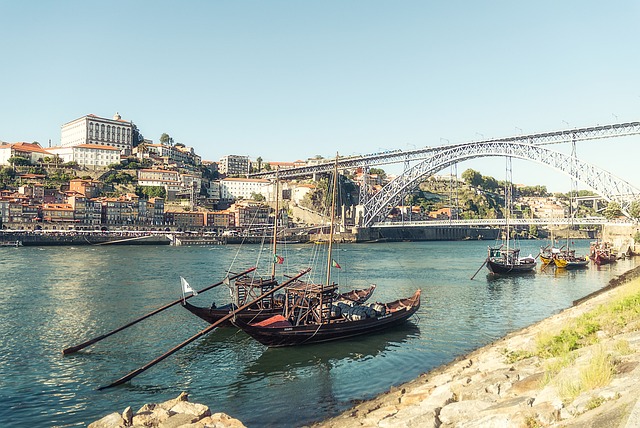
Porto, the second-largest city in Portugal, is also a popular destination for digital nomads. Located in the north of the country, Porto is known for its beautiful architecture, delicious food, and famous port wine. It is a popular tourist destination and is home to a number of historic landmarks, including the Cathedral of Porto and the Clerigos Tower.
Like Lisbon, Porto has a number of coworking spaces and cafes that offer fast and reliable internet, making it easy for digital nomads to work remotely. The city also has a number of affordable apartments and hotels that cater to digital nomads, and it is easy to find short-term rentals through websites such as Airbnb.
Porto is a culturally diverse city and has a number of expat communities, making it easy for digital nomads to meet other like-minded individuals. The city is also well connected, with good public transportation and easy access to other parts of the country and Europe.
Porto Portugal Coworking Space
There are several coworking spaces available in Porto, Portugal. Some options include:
- Cowork Central: This coworking space is located in the center of Porto and offers a range of workspace options, including private offices, coworking desks, and meeting rooms.
- Coworklisboa: This coworking space has several locations throughout Porto, offering a range of workspace options including private offices, coworking desks, and meeting rooms.
- The Porto Collective: This coworking space offers a range of workspace options, including private offices, coworking desks, and event spaces. It also has a strong focus on community building and networking.
- Cowork Porto: This coworking space offers a range of workspace options, including private offices, coworking desks, and meeting rooms. It also has a strong focus on sustainability and social impact.
- Beta-i: This coworking space is located in the heart of Porto’s startup district and offers a range of workspace options, including private offices, coworking desks, and event spaces.
It’s worth noting that many coworking spaces in Porto offer flexible membership options, so you can choose the type of membership that best fits your needs.
Coimbra Portugal for digital nomads
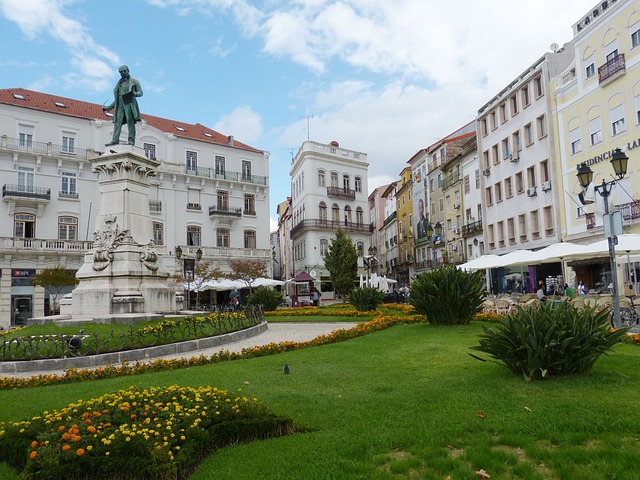
Coimbra, located in central Portugal, is a popular destination for digital nomads. The city is known for its beautiful architecture, rich history, and vibrant culture. It is home to a number of important landmarks, including the University of Coimbra, which is a UNESCO World Heritage site.
Coimbra has a number of coworking spaces and cafes that offer fast and reliable internet, making it easy for digital nomads to work remotely. The city also has a number of affordable apartments and hotels that cater to digital nomads, and it is easy to find short-term rentals through websites such as Airbnb.
Coimbra is a culturally diverse city and has a number of expat communities, making it easy for digital nomads to meet other like-minded individuals. The city is also well connected, with good public transportation and easy access to other parts of the country and Europe.
Coimbra Portugal Coworking Space
There are several coworking spaces available in Coimbra, Portugal. Some options include:
- Cowork Central: This coworking space is located in the center of Coimbra and offers a range of workspace options, including private offices, coworking desks, and meeting rooms.
- Coworklisboa: This coworking space has several locations throughout Coimbra, offering a range of workspace options including private offices, coworking desks, and meeting rooms.
- The Coimbra Collective: This coworking space offers a range of workspace options, including private offices, coworking desks, and event spaces. It also has a strong focus on community building and networking.
- Cowork Coimbra: This coworking space offers a range of workspace options, including private offices, coworking desks, and meeting rooms. It also has a strong focus on sustainability and social impact.
- Beta-i: This coworking space is located in the heart of Coimbra’s startup district and offers a range of workspace options, including private offices, coworking desks, and event spaces.
It’s worth noting that many coworking spaces in Coimbra offer flexible membership options, so you can choose the type of membership that best fits your needs.
Faro Portugal for digital nomads

Faro, located in the Algarve region in the south of Portugal, is a popular destination for digital nomads. The city is known for its beautiful beaches and charming villages, and it is a popular tourist destination. It is also a gateway to the Ria Formosa Natural Park, a protected area known for its rich birdlife and beautiful beaches.
Faro has a number of coworking spaces and cafes that offer fast and reliable internet, making it easy for digital nomads to work remotely. The city also has a number of affordable apartments and hotels that cater to digital nomads, and it is easy to find short-term rentals through websites such as Airbnb.
Faro is a culturally diverse city and has a number of expat communities, making it easy for digital nomads to meet other like-minded individuals. The city is also well connected, with good public transportation and easy access to other parts of the country and Europe.
Braga Portugal for digital nomads
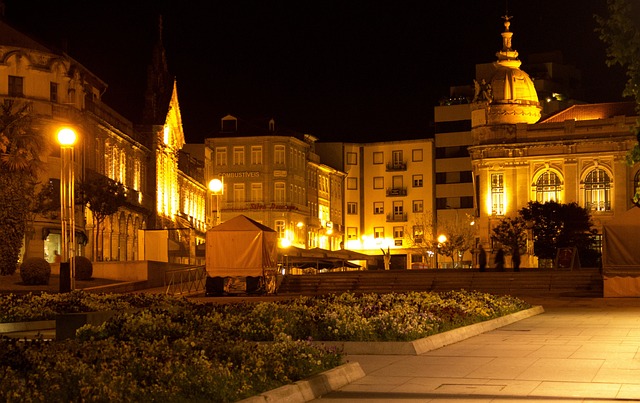
Braga, located in the north of Portugal, is a popular destination for digital nomads. The city is the fourth-largest in Portugal and is known for its rich history, beautiful architecture, and vibrant culture. It is home to a number of important landmarks, including the Bom Jesus do Monte, a UNESCO World Heritage site.
Braga has a number of coworking spaces and cafes that offer fast and reliable internet, making it easy for digital nomads to work remotely. The city also has a number of affordable apartments and hotels that cater to digital nomads, and it is easy to find short-term rentals through websites such as Airbnb.
Braga is a culturally diverse city and has a number of expat communities, making it easy for digital nomads to meet other like-minded individuals. The city is also well connected, with good public transportation and easy access to other parts of the country and Europe.
Setubal Portugal for digital nomads
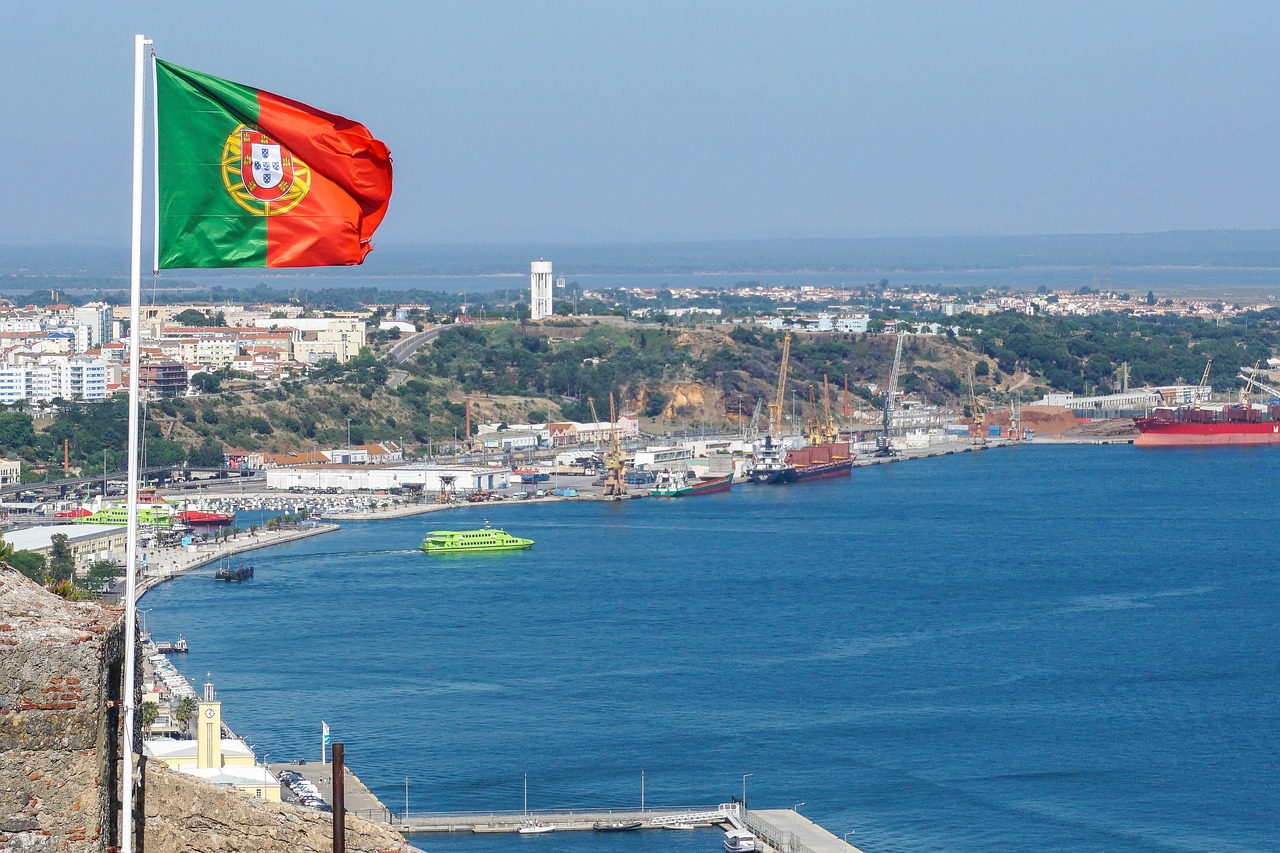
Setubal, located in the Lisbon region of Portugal, is a popular destination for digital nomads. The city is known for its beautiful beaches and charming villages, and it is a popular tourist destination. It is also a gateway to the Arrabida Natural Park, a protected area known for its stunning landscapes and rich biodiversity.
Setubal has a number of coworking spaces and cafes that offer fast and reliable internet, making it easy for digital nomads to work remotely. The city also has a number of affordable apartments and hotels that cater to digital nomads, and it is easy to find short-term rentals through websites such as Airbnb.
Setubal is a culturally diverse city and has a number of expat communities, making it easy for digital nomads to meet other like-minded individuals. The city is also well connected, with good public transportation and easy access to other parts of the country and Europe
Evora Portugal for digital nomads
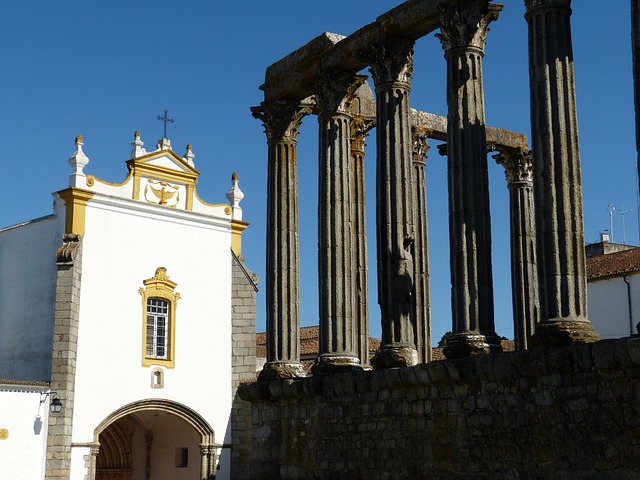
Evora, located in the Alentejo region in central Portugal, is a popular destination for digital nomads. The city is known for its beautiful architecture, rich history, and charming atmosphere. It is a UNESCO World Heritage site and is home to a number of important landmarks, including the Roman Temple of Evora and the Cathedral of Evora.
Evora has a number of coworking spaces and cafes that offer fast and reliable internet, making it easy for digital nomads to work remotely. The city also has a number of affordable apartments and hotels that cater to digital nomads, and it is easy to find short-term rentals through websites such as Airbnb.
Evora is a culturally diverse city and has a number of expat communities, making it easy for digital nomads to meet other like-minded individuals. The city is also well connected, with good public transportation and easy access to other parts of the country and Europe.
Portugal Internet
Overall, internet in Portugal is generally reliable and widely available. The country has a relatively high broadband penetration rate, with over 95% of households having access to broadband internet. The majority of households in Portugal have access to high-speed fiber optic broadband, which is known for its fast and reliable connection speeds.
In recent years, the Portuguese government has made efforts to improve internet infrastructure and increase access to high-speed internet across the country. As a result, internet connectivity in Portugal is generally good, with few reported outages or service disruptions.
However, internet speeds and reliability can vary depending on the location and provider. In rural areas, internet speeds may be slower and connectivity may be less reliable. It is recommended to research internet providers and packages before moving to or visiting Portugal to ensure that you have access to a fast and reliable internet connection.
Portugal cost of living
The cost of living in Portugal varies depending on the location and individual lifestyle. Overall, the cost of living in Portugal is generally lower than in other Western European countries, such as France, Germany, and the United Kingdom.
The cost of living in Portugal is generally lower than in other Western European countries, such as France, Germany, and the United Kingdom. Prices for goods and services, including food, housing, transportation, and healthcare, are generally lower in Portugal compared to these countries.
The cost of housing in Portugal varies depending on the location. In larger cities, such as Lisbon and Porto, the cost of housing is generally higher than in smaller cities and towns. Rent prices for apartments in Lisbon and Porto tend to be higher than in other parts of the country, although it is still possible to find affordable housing options.
Transportation costs in Portugal are generally lower than in other European countries. Public transportation is affordable and widely available in most cities, and the cost of owning a car is generally lower than in other European countries.
Overall, the cost of living in Portugal is generally lower than in other Western European countries, making it an attractive destination for those looking to live and work in Europe.
Portugal airports
Portugal has a number of airports that serve both domestic and international flights. The main international airport in Portugal is Lisbon Portela Airport (LIS), which is located in the capital city of Lisbon. This airport is the busiest in the country and serves a wide range of domestic and international destinations.
Other international airports in Portugal include Porto Airport (OPO), located in the city of Porto, and Faro Airport (FAO), located in the Algarve region in the south of the country. These airports serve a range of domestic and international destinations and are major gateways for tourists visiting Portugal.
In addition to these major airports, Portugal has a number of smaller regional airports that serve domestic and some international flights. These airports include Beja Airport (BYJ), located in the Alentejo region, Braga Airport (BGZ), located in the north of the country, and Coimbra Airport (CPC), located in central Portugal.
Overall, Portugal has a well-developed aviation infrastructure, with a number of airports serving both domestic and international flights.
Portugal accommodation
There are a variety of accommodation options available in Portugal, including hotels, hostels, guesthouses, and vacation rentals. The type of accommodation you choose will depend on your budget, preferences, and the location you are visiting.
Hotels: Portugal has a range of hotels to choose from, including luxury hotels, mid-range hotels, and budget hotels. Hotel prices vary depending on the location, amenities, and star rating.
Hostels: Hostels are a budget-friendly accommodation option and are popular with backpackers and budget travelers. Portugal has a number of hostels located in major cities and tourist destinations, and prices vary depending on the location and facilities.
Guesthouses: Guesthouses, also known as bed and breakfasts, are a popular accommodation option in Portugal. They are generally smaller than hotels and offer a more personal and homely atmosphere. Prices for guesthouses vary depending on the location and amenities.
Vacation rentals: Vacation rentals, such as apartments and villas, are a popular accommodation option in Portugal, especially for families and groups. Vacation rentals can be found in major cities and tourist destinations and prices vary depending on the location, size, and amenities.
Overall, there are a variety of accommodation options available in Portugal, ranging from luxury hotels to budget hostels, to suit a range of budgets and preferences. It is recommended to research and compare different options before booking your accommodation in Portugal.
Popular Portugal hostels
Some of the most popular hostels in Portugal include:
- The Independente Hostel & Suites, located in Lisbon: This hostel is located in a historic building in the heart of Lisbon and offers a range of private and shared rooms. It is known for its social atmosphere, excellent location, and affordable prices.
- The Yes! Lisbon Hostel, located in Lisbon: This hostel is located in a historic building in the center of Lisbon and offers a range of private and shared rooms. It is known for its affordable prices, excellent location, and social atmosphere.
- The Oasis Backpackers’ Hostel, located in Porto: This hostel is located in the center of Porto and offers a range of private and shared rooms. It is known for its affordable prices, excellent location, and social atmosphere.
- The Hey Jude Lisbon Hostel, located in Lisbon: This hostel is located in a historic building in the heart of Lisbon and offers a range of private and shared rooms. It is known for its affordable prices, excellent location, and social atmosphere.
Overall, there are a number of popular hostels in Portugal that offer budget-friendly accommodation and a social atmosphere, making them a popular choice for backpackers and budget travelers visiting the country.
Popular Portugal vacation rentals
There are a number of popular vacation rentals in Portugal that are known for their beautiful locations, spacious interiors, and excellent amenities. Some of the most popular vacation rentals in Portugal include:
- The Quinta do Lago villa, located in the Algarve region: This luxurious villa is located in the popular tourist destination of the Algarve region and offers a range of amenities, including a pool and golf course access. It is known for its beautiful location and spacious interiors.
- The Casa da Praia vacation rental, located in the Algarve region: This vacation rental is located in the popular tourist destination of the Algarve region and offers a range of amenities, including a pool and outdoor barbecue area. It is known for its beautiful location and spacious interiors.
- The Lisbon apartment, located in Lisbon: This vacation rental is located in the heart of Lisbon and offers a range of amenities, including a rooftop terrace with views of the city. It is known for its excellent location and spacious interiors.
- The Porto apartment, located in Porto: This vacation rental is located in the center of Porto and offers a range of amenities, including a rooftop terrace with views of the city. It is known for its excellent location and spacious interiors.
Overall, there are a number of popular vacation rentals in Portugal that offer beautiful locations, spacious interiors, and excellent amenities, making them a popular choice for travelers visiting the country.
Popular Portugal Guesthouses
There are a number of popular guesthouses in Portugal that are known for their charming atmosphere, central locations, and excellent service. Some of the most popular guesthouses in Portugal include:
- The Casa do Largo guesthouse, located in Lisbon: This guesthouse is located in a historic building in the heart of Lisbon and offers a range of private rooms. It is known for its charming atmosphere, excellent location, and excellent service.
- The Casa da Avó guesthouse, located in Porto: This guesthouse is located in a historic building in the center of Porto and offers a range of private rooms. It is known for its charming atmosphere, excellent location, and excellent service.
- The Casa da Sé guesthouse, located in Coimbra: This guesthouse is located in a historic building in the center of Coimbra and offers a range of private rooms. It is known for its charming atmosphere, excellent location, and excellent service.
- The Casa da Música guesthouse, located in Braga: This guesthouse is located in a historic building in the center of Braga and offers a range of private rooms. It is known for its charming atmosphere, excellent location, and excellent service.
Overall, there are a number of popular guesthouses in Portugal that offer a charming atmosphere, excellent locations, and excellent service, making them a popular choice for travelers visiting the country.
Popular Portugal hotels
here are a number of popular hotels in Portugal that are known for their luxurious amenities, beautiful locations, and excellent service. Some of the most popular hotels in Portugal include:
- The Ritz Four Seasons Hotel, located in Lisbon: This luxurious hotel is located in the heart of Lisbon and offers stunning views of the city. It is known for its excellent service, spacious rooms, and elegant decor.
- The Pestana Palace Hotel, located in Lisbon: This 5-star hotel is located in a 19th-century palace and offers luxurious amenities and beautiful gardens. It is known for its excellent service and is a popular choice for luxury travelers.
- The Algarve Casino Hotel, located in the Algarve region: This 5-star hotel is located in the popular tourist destination of the Algarve region and offers luxurious amenities, including a casino and spa. It is known for its beautiful location and excellent service.
- The Vila Vita Parc Resort & Spa, located in the Algarve region: This luxurious resort is located in the Algarve region and offers a range of amenities, including multiple pools, a spa, and a golf course. It is known for its beautiful location and excellent service.
Overall, there are a number of popular hotels in Portugal that offer luxurious amenities and excellent service, making them a popular choice for travelers to the country.
Popular Portugal beaches
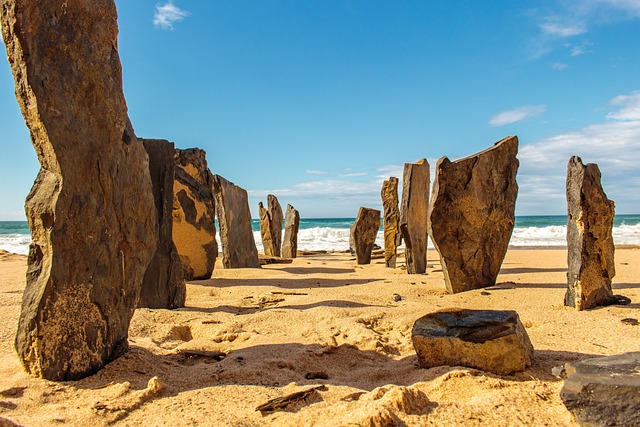
Portugal is known for its beautiful beaches and is a popular destination for beach vacations. Some of the most popular beaches in Portugal include:
- Praia da Rocha, located in the Algarve region: This beach is located in the popular tourist destination of the Algarve region and is known for its golden sands, beautiful rock formations, and clear waters.
- Praia do Vau, located in the Algarve region: This beach is located in the popular tourist destination of the Algarve region and is known for its beautiful golden sands and crystal-clear waters.
- Praia da Nazaré, located in the Silver Coast region: This beach is located in the Silver Coast region and is known for its dramatic cliffs, beautiful golden sands, and excellent surf conditions.
- Praia da Falesia, located in the Algarve region: This beach is located in the popular tourist destination of the Algarve region and is known for its beautiful golden sands, clear waters, and picturesque cliffs.
- Praia do Porto de Mós, located in the Algarve region: This beach is located in the popular tourist destination of the Algarve region and is known for its beautiful golden sands, clear waters, and picturesque cliffs.
Overall, there are a number of beautiful beaches in Portugal that are popular with travelers visiting the country.
Portugal food
Portuguese cuisine is known for its rich and flavorful dishes, which are influenced by a variety of cultural and historical factors. Portuguese food is typically made with fresh, locally-sourced ingredients, and it is known for its seafood, meat dishes, and flavorful sauces.
Some popular Portuguese dishes include:
- Bacalhau: Bacalhau is a traditional Portuguese dish made with salt cod, which is a popular ingredient in Portuguese cuisine. It is often served with potatoes and vegetables.
- Francesinha: Francesinha is a popular dish from Porto that consists of a sandwich filled with meat and covered in a spicy tomato and beer sauce. It is often served with chips (fries) on the side.
- Caldo verde: Caldo verde is a traditional Portuguese soup made with potatoes, collard greens, and chorizo sausage. It is a popular dish in Portugal and is often served as a starter or a light meal.
- Cozido à portuguesa: Cozido à portuguesa is a traditional Portuguese stew made with a variety of meats and vegetables. It is a hearty and flavorful dish that is often served as a main course.
- Pasteis de nata: Pasteis de nata are small Portuguese pastries filled with a creamy custard and dusted with cinnamon. They are a popular dessert in Portugal and are often served with a cup of coffee.
Overall, Portuguese cuisine is known for its rich and flavorful dishes that are made with fresh, locally-sourced ingredients. It is a diverse and delicious cuisine that is enjoyed by many people around the world.
Popular Portugal restaurants
There are a number of popular restaurants in Portugal that are known for their delicious food, excellent service, and charming atmosphere. Some of the most popular restaurants in Portugal include:
- O Prego da Peixaria, located in Lisbon: This restaurant is located in the heart of Lisbon and is known for its delicious Portuguese sandwiches, made with fresh ingredients and served on artisanal bread.
- Taberna da Rua das Flores, located in Lisbon: This restaurant is located in the heart of Lisbon and is known for its delicious Portuguese cuisine, made with fresh ingredients and served in a charming atmosphere.
- Os Tibetanos, located in Porto: This restaurant is located in the center of Porto and is known for its delicious Tibetan and Nepalese cuisine, made with fresh ingredients and served in a charming atmosphere.
- A Travessa, located in Coimbra: This restaurant is located in the center of Coimbra and is known for its delicious Portuguese cuisine, made with fresh ingredients and served in a charming atmosphere.
- O Gaveto, located in Braga: This restaurant is located in the center of Braga and is known for its delicious Portuguese cuisine, made with fresh ingredients and served in a charming atmosphere.
Overall, there are a number of popular restaurants in Portugal that offer delicious food, excellent service, and a charming atmosphere, making them a popular choice for travelers visiting the country.
Portugal grocery stores
There are a number of grocery stores in Portugal where you can purchase a variety of food and household items. Some of the most popular grocery store chains in Portugal include:
- Pingo Doce: Pingo Doce is a popular grocery store chain in Portugal that offers a wide range of food and household items. It has stores throughout the country and is known for its good prices and wide selection of products.
- Continente: Continente is another popular grocery store chain in Portugal that offers a wide range of food and household items. It has stores throughout the country and is known for its good prices and wide selection of products.
- Lidl: Lidl is a popular discount grocery store chain in Portugal that offers a wide range of food and household items at low prices. It has stores throughout the country and is known for its good value for money.
- Aldi: Aldi is another popular discount grocery store chain in Portugal that offers a wide range of food and household items at low prices. It has stores throughout the country and is known for its good value for money.
Overall, there are a number of grocery store chains in Portugal that offer a wide range of food and household items at a range of prices. It is a good idea to compare prices and shop around to find the best deals.
Portugal climate
The climate of Portugal is Mediterranean, with mild winters and hot, dry summers. The country is located on the Atlantic coast of southwestern Europe and has a temperate climate, with average temperatures ranging from around 10°C (50°F) in the winter to around 25°C (77°F) in the summer.
The climate in Portugal varies depending on the region. The coastal regions have a mild, temperate climate, with average temperatures ranging from around 15°C (59°F) in the winter to around 25°C (77°F) in the summer. The interior regions of Portugal have a more continental climate, with hotter summers and colder winters.
Rainfall in Portugal is generally heaviest in the winter months, with an average of around 70-80mm of rain per month. In the summer months, rainfall is much lighter, with an average of around 20-30mm of rain per month.
Overall, the climate in Portugal is generally mild and pleasant, with hot, dry summers and mild winters. It is a popular destination for travelers looking to escape the colder climates of Northern Europe.
Portugal transportation
Portugal has a well-developed transportation infrastructure, with a variety of options for getting around the country. Some of the most common forms of transportation in Portugal include:
- Train: Portugal has a well-developed train network that connects major cities and tourist destinations. The main train operator in Portugal is Comboios de Portugal (CP), which operates a range of trains, including high-speed trains, regional trains, and intercity trains.
- Bus: Portugal has a network of bus routes that connect major cities and towns. The main bus operator in Portugal is Rede Nacional de Expressos (RENEX), which operates a range of long-distance and regional buses.
- Metro: The city of Lisbon has a modern metro system that connects the city center with outlying suburbs. The metro is a convenient and efficient way to get around the city.
- Taxi: Taxis are a convenient and widely available mode of transportation in Portugal. Taxis can be hailed on the street or at designated taxi ranks, or they can be booked in advance through a taxi company.
- Rental car: Renting a car is a convenient way to explore Portugal and visit more remote areas. There are a number of car rental companies in Portugal that offer a range of vehicles for hire.
Overall, Portugal has a variety of transportation options, including trains, buses, the metro, taxis, and rental cars, making it easy to get around the country.
A Short History of Portugal
Portugal is a small country located on the Iberian Peninsula, with a rich and diverse history that spans thousands of years. Its history includes prehistoric settlements, Roman occupation, and the Muslim rule of Al-Andalus. However, Portugal truly established its own identity in 1139 when it became an independent kingdom under the rule of King Afonso Henriques.
Over the next few centuries, Portugal embarked on a period of expansion and exploration that culminated in the Age of Discovery. Portuguese explorers, such as Vasco da Gama and Pedro Álvares Cabral, sailed the seas in search of new trade routes and territories, ultimately establishing a vast colonial empire that spanned several continents.
During this period, Portugal became one of the wealthiest and most powerful nations in the world. The country established colonies in Brazil, Africa, Asia, and other parts of the world, bringing new cultures, religions, and goods back to Portugal.
However, Portugal’s power and wealth began to decline in the 17th and 18th centuries, due to internal conflicts, economic struggles, and competition from other European powers. By the 19th century, Portugal had lost most of its colonial empire, including Brazil, which gained independence in 1822.
In the 20th century, Portugal underwent significant political changes, including the establishment of a republic in 1910 and the authoritarian regime of António de Oliveira Salazar in 1932. The regime, known as the Estado Novo, lasted until 1974 when the Carnation Revolution led to the establishment of a democratic government.
Since then, Portugal has experienced a period of political and economic development, joining the European Union in 1986 and adopting the euro as its official currency in 1999. The country has diversified its economy, focusing on sectors such as tourism, renewable energy, and technology, and has become a popular destination for visitors from around the world.
In summary, Portugal’s history is characterized by a rich and diverse cultural heritage, a pioneering spirit of exploration and discovery, and a resilient and adaptive spirit. The country continues to evolve and adapt to the challenges of the modern era, embracing its unique identity and contributing positively to the global community.
Read also: A Complete History of Portugal

